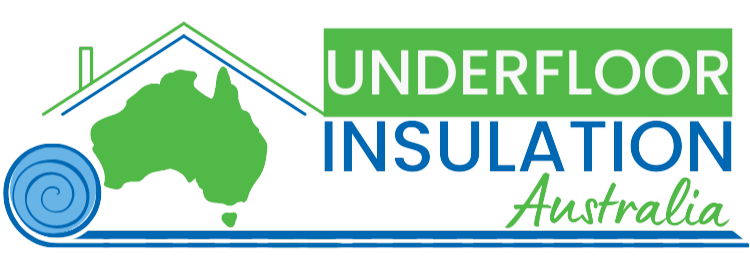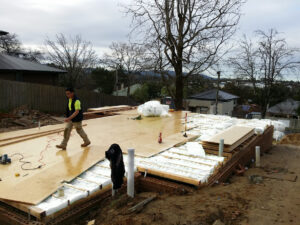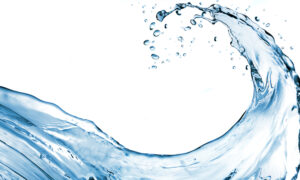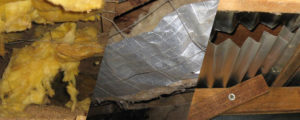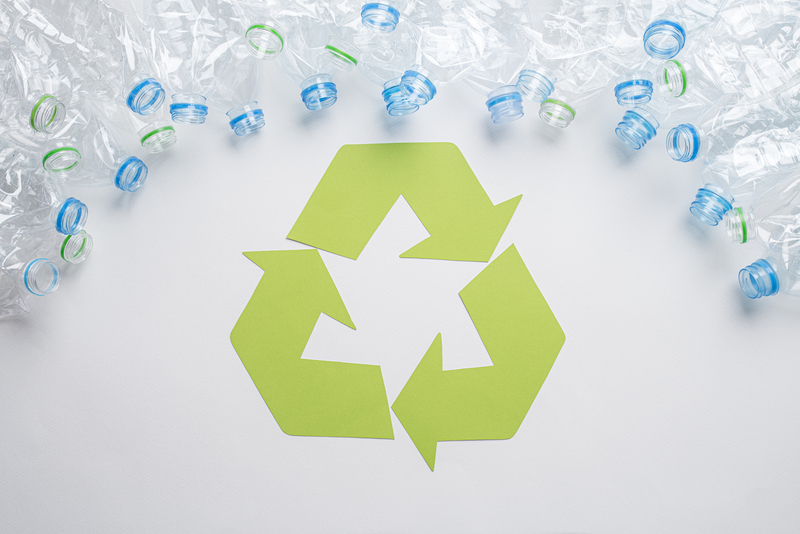
When it comes to insulating your home, not all materials are created equal. Polyester insulation stands out as a superior option for those seeking an eco-friendly and safe solution. Let’s explore why polyester insulation is an excellent choice for environmentally conscious homeowners and those concerned about safety.
Eco-Friendly Features
Polyester insulation is renowned for its green credentials. Made from a significant percentage of recycled materials – PET plastic bottles, polyester insulation turns potential landfill waste into valuable insulation that saves energy. This recycling process reduces the demand for virgin materials, decreasing the carbon footprint associated with production. These eco-friendly practices contribute to a healthier environment as well as supporting sustainable building practices.
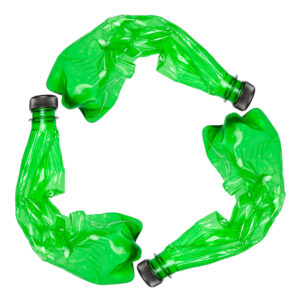
Transforming Waste into Comfort
The journey from PET plastic bottles to high-performance polyester insulation is a shining example of effective recycling. These bottles are collected, cleaned, and processed into fibres that form the basis of the insulation material.
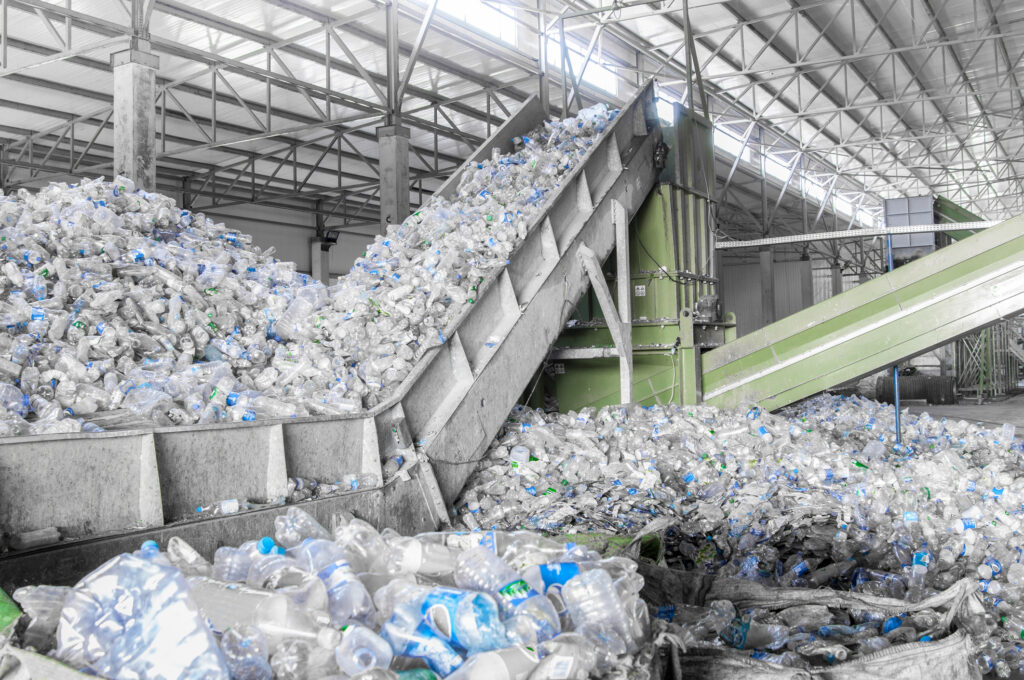
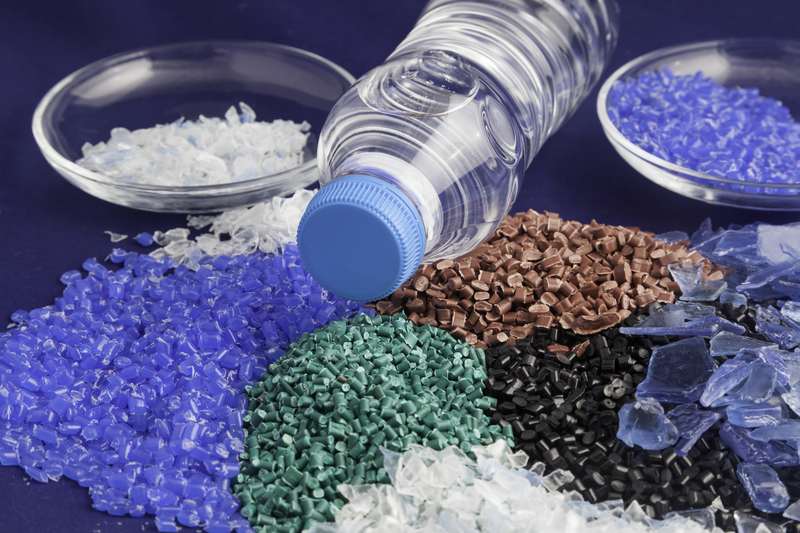
This process ensures that plastic waste is diverted from landfills and transformed into a product that provides real-world benefits by enhancing the energy efficiency of homes.
There are 3 different grades of polyester fibres (high melt, mid melt, and low melt) are used to bind all the fibres together. The most important part of the manufacturing process is the combing of polyester fibres into one direction. This makes the insulation incredibly strong in one direction, but easy to tear in the other direction. Heat is applied to the combed fibres and the insulation is layered as it goes through the ovens. No binders are used. The resulting insulation is perfectly formed as it emerges from the ovens, then trimmed and sliced into the required format. There is no waste as the trimmed insulation is fed back into the next run of manufacture.
Safety First
One of the most significant advantages of polyester insulation is its inherent safety features. Unlike some traditional insulation materials, polyester does not contain harmful chemicals like formaldehyde, making it a non-toxic choice for your home.
This aspect is particularly important for households with children, elderly residents, or anyone with allergies or respiratory issues.
Some types of insulation (NOT polyester) use a “bio-soluble” binder. Maybe like you, I had to look up what “bio-soluble” actually means. “Fibres that will dissolve in your pulmonary alveoli”. And so I looked that up too “… tiny air sacs that function as basic respiratory units. It is a hollow cup-shaped cavity in the lung parenchyma, where gas exchange takes place. Lung alveoli are found in the acini at the beginning of the respiratory zone”. What does this mean? Some types of insulation (not polyester) have small fibres that will dissolve in your lungs. 🙁
Polyester’s non-irritant nature means it doesn’t release particles that can enter your body, irritate your skin or your lungs during or after installation. Basically, there are no fibres to be breathed into your lungs. This is probably why your pillows and doona filling are made from polyester.
Fire Resistance
Safety concerns extend beyond chemical composition. Polyester insulation is fire resistant, which is a critical feature for any building material. This type of insulation does not easily catch fire and will melt away from flames instead of adding fuel to a fire, providing an additional layer of safety to your home. Read more about Fire Ratings here.
Water Resistance
Another significant advantage of polyester insulation is its hydrophobic properties. Unlike some forms of insulation materials that absorbs moisture, polyester naturally repels water. This characteristic helps prevent the common issues associated with moisture such as mould and mildew growth within the insulation layers.
This enhances the durability and effectiveness of the insulation over time, maintaining a healthier and more stable indoor environment. The ability to resist water also means that polyester insulation does not lose its insulative properties even in damp conditions, ensuring continuous thermal performance regardless of seasonal humidity changes.
When considering alternatives to polyester for underfloor insulation, it’s crucial to evaluate how they respond to moisture. This consideration is especially important for underfloor applications where the potential for water exposure is higher due to common household incidents like broken water pipes, overfilled bathtubs, leaky showers, or issues with dishwashers and washing machines. Materials that absorb water can degrade in performance, encourage mould growth, and may eventually compromise the structural integrity of your home.
Some well-known brands of insulation indicate that they are resistant against humidity and UV for up to 2 months. Other brands indicate that if their insulation becomes wet, it needs to be replaced. Polyester does not need to be replaced if it gets wet and it is highly UV stable. Ensuring your chosen insulation material maintains its effectiveness and integrity when exposed to moisture, and UV, will lead to better long-term results and safety.
Durable and Long-lasting
Durability is another eco-friendly feature of polyester insulation. Its robust nature means that it maintains its shape and effectiveness over time, reducing the need for replacements and minimizing waste. Additionally, polyester is resistant to pests and mould, ensuring that it doesn’t degrade due to infestation or moisture, which can be a problem with other types of insulation.
Comfort Year-Round
Apart from its environmental and safety benefits, polyester insulation effectively reduces energy consumption by keeping your home warmer in winter and cooler in summer. This improved thermal performance translates to lower heating and cooling bills, making polyester insulation a smart investment that pays off in the long term with significant energy savings.
Choosing polyester insulation is a decision that benefits not just your household but also the environment. Its safety, sustainability, and energy efficiency make it a standout choice for anyone looking to improve their home’s insulation. By opting for polyester, you’re choosing a material that is safe, eco-friendly, and capable of providing comfort and savings for years to come.
For more detailed information on the benefits of polyester insulation and how to incorporate it into your home, visit ecoMaster and Underfloor Insulation Australia.
